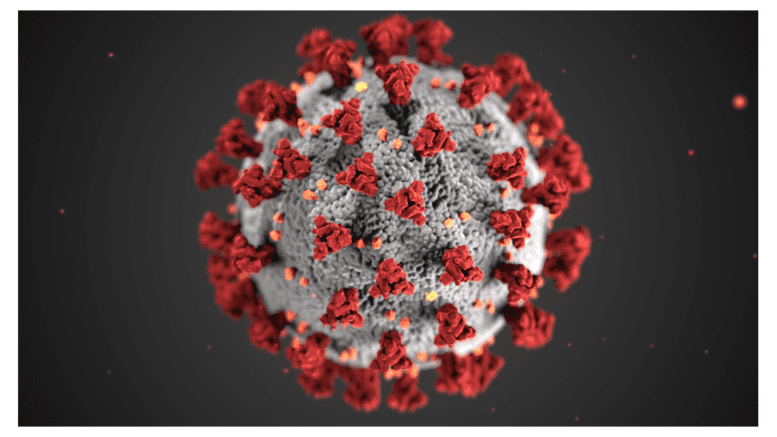According to the CDC, the 7-day average of new daily COVID cases nationwide is more than 1,000 percent higher than June’s lowest average.
The CDC tweeted the following yesterday evening:
#COVID19 community transmission in the U.S. is high.
— CDC (@CDCgov) August 18, 2021
As of August 18, the 7-day average of daily new cases is 130,121. This is 13.2% higher than the previous week, & 1,016.8% higher than the lowest average in June 2021. Get vaccinated. More data: https://t.co/iSLwhCwlZ2 pic.twitter.com/aVXlf6VCDx
Nearly the entire nation is experiencing high levels of community transmission, defined as at 14-day case rate of more than 100 cases per 100,000 population.
Cobb County community transmission
Meanwhile here in Cobb County the 14-day cases per 100,000 is a staggering 651, more than 6.5 times the threshold of high community transmission, according to yesterday’s figures from Cobb & Douglas Public Health.
The county release a video yesterday which featured various Cobb public officials urging residents to get vaccinated, including Sheriff Craig Owens, who had COVID-19, and District Attorney Flynn Broady, who lost three family members to the pandemic.
CDC expects booster shots to be available by September
Based on the latest research which indicates that the COVID vaccines have diminishing potency with the passage of time, the CDC is recommending booster shots, and expects to begin rolling them out by September 20.
The following statement was distributed by the U.S. Department of Health and Human Services, with a group of signatories including Dr. Rochelle Walensky, Director of the Centers for Disease Control and Prevention (CDC); Dr. Janet Woodcock, Acting Commissioner, Food and Drug Administration (FDA); Dr. Vivek Murthy, U.S. Surgeon General; Dr. Francis Collins, Director of the National Institutes of Health (NIH); Dr. Anthony Fauci, Chief Medical Advisor to President Joe Biden and Director of the National Institute of Allergy and Infectious Diseases (NIAID); Dr. Rachel Levine, Assistant Secretary for Health; Dr. David Kessler, Chief Science Officer for the COVID-19 Response; and Dr. Marcella Nunez-Smith, Chair of the COVID-19 Health Equity Task Force.
“The COVID-19 vaccines authorized in the United States continue to be remarkably effective in reducing risk of severe disease, hospitalization, and death, even against the widely circulating Delta variant. Recognizing that many vaccines are associated with a reduction in protection over time, and acknowledging that additional vaccine doses could be needed to provide long lasting protection, we have been analyzing the scientific data closely from the United States and around the world to understand how long this protection will last and how we might maximize this protection. The available data make very clear that protection against SARS-CoV-2 infection begins to decrease over time following the initial doses of vaccination, and in association with the dominance of the Delta variant, we are starting to see evidence of reduced protection against mild and moderate disease. Based on our latest assessment, the current protection against severe disease, hospitalization, and death could diminish in the months ahead, especially among those who are at higher risk or were vaccinated during the earlier phases of the vaccination rollout. For that reason, we conclude that a booster shot will be needed to maximize vaccine-induced protection and prolong its durability.
“We have developed a plan to begin offering these booster shots this fall subject to FDA conducting an independent evaluation and determination of the safety and effectiveness of a third dose of the Pfizer and Moderna mRNA vaccines and CDC’s Advisory Committee on Immunization Practices (ACIP) issuing booster dose recommendations based on a thorough review of the evidence. We are prepared to offer booster shots for all Americans beginning the week of September 20 and starting 8 months after an individual’s second dose. At that time, the individuals who were fully vaccinated earliest in the vaccination rollout, including many health care providers, nursing home residents, and other seniors, will likely be eligible for a booster. We would also begin efforts to deliver booster shots directly to residents of long-term care facilities at that time, given the distribution of vaccines to this population early in the vaccine rollout and the continued increased risk that COVID-19 poses to them.
“We also anticipate booster shots will likely be needed for people who received the Johnson & Johnson (J&J) vaccine. Administration of the J&J vaccine did not begin in the U.S. until March 2021, and we expect more data on J&J in the next few weeks. With those data in hand, we will keep the public informed with a timely plan for J&J booster shots as well.
“Our top priority remains staying ahead of the virus and protecting the American people from COVID-19 with safe, effective, and long-lasting vaccines especially in the context of a constantly changing virus and epidemiologic landscape. We will continue to follow the science on a daily basis, and we are prepared to modify this plan should new data emerge that requires it.
“We also want to emphasize the ongoing urgency of vaccinating the unvaccinated in the U.S. and around the world. Nearly all the cases of severe disease, hospitalization, and death continue to occur among those not yet vaccinated at all. We will continue to ramp up efforts to increase vaccinations here at home and to ensure people have accurate information about vaccines from trusted sources. We will also continue to expand our efforts to increase the supply of vaccines for other countries, building further on the more than 600 million doses we have already committed to donate globally.”
